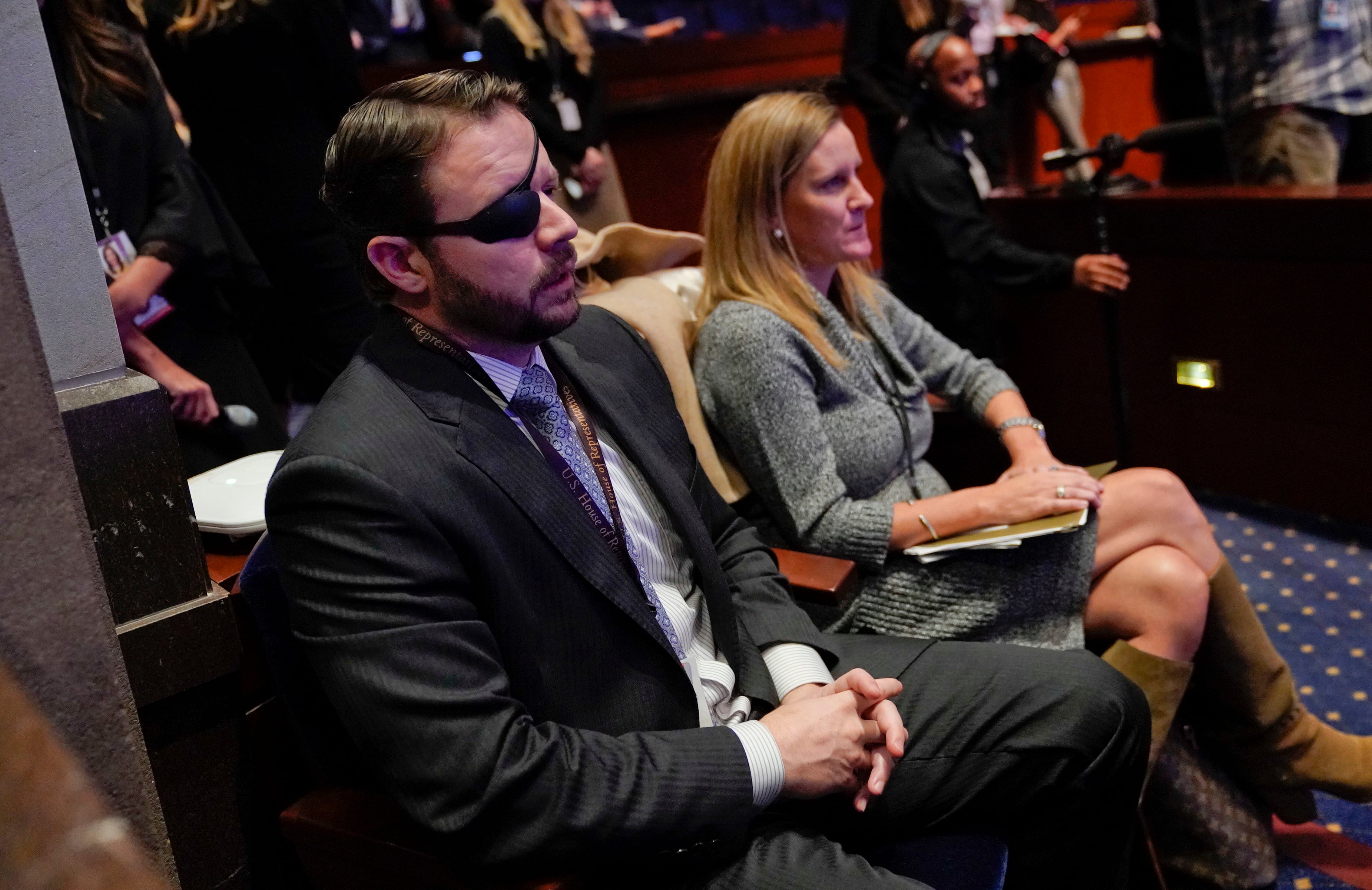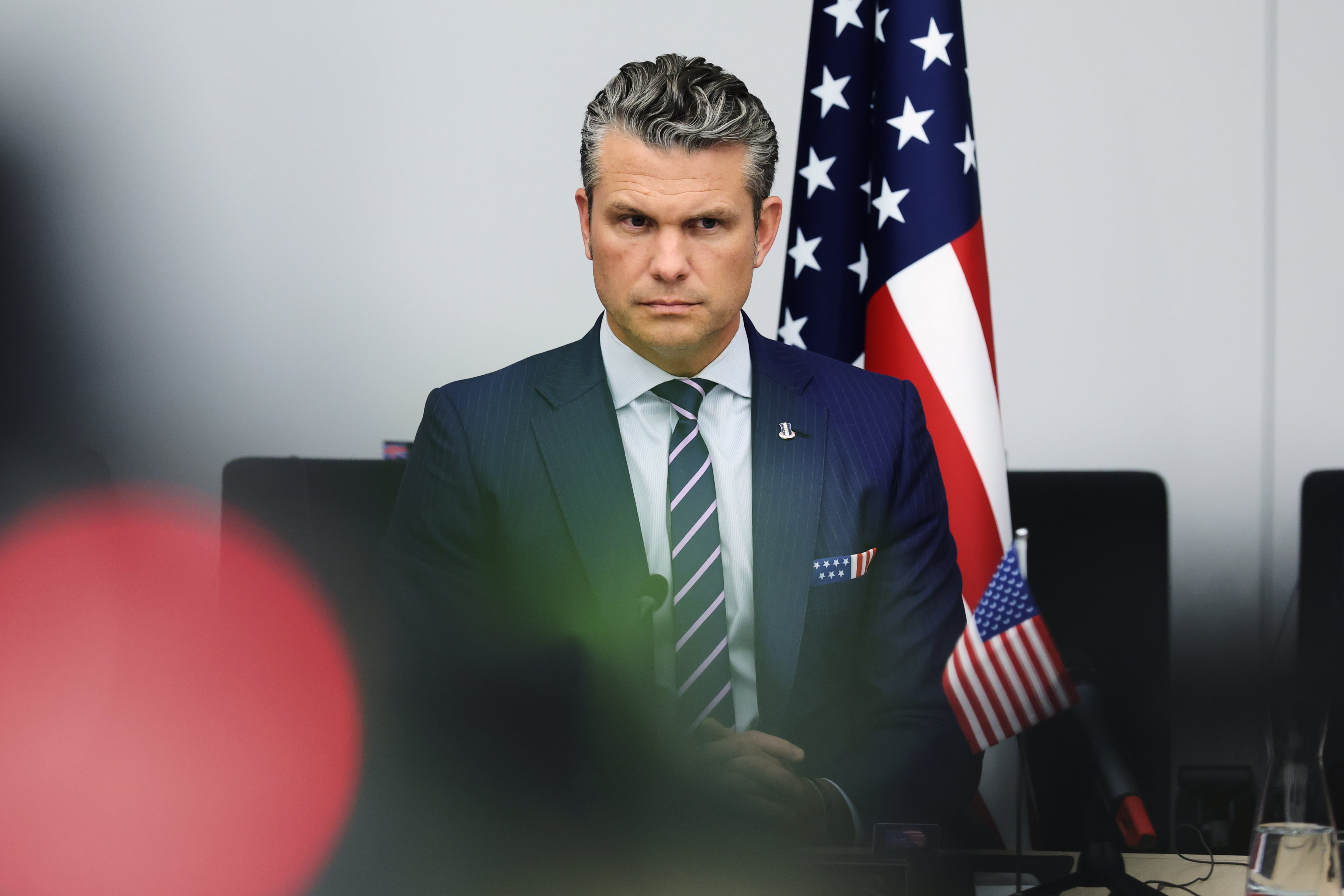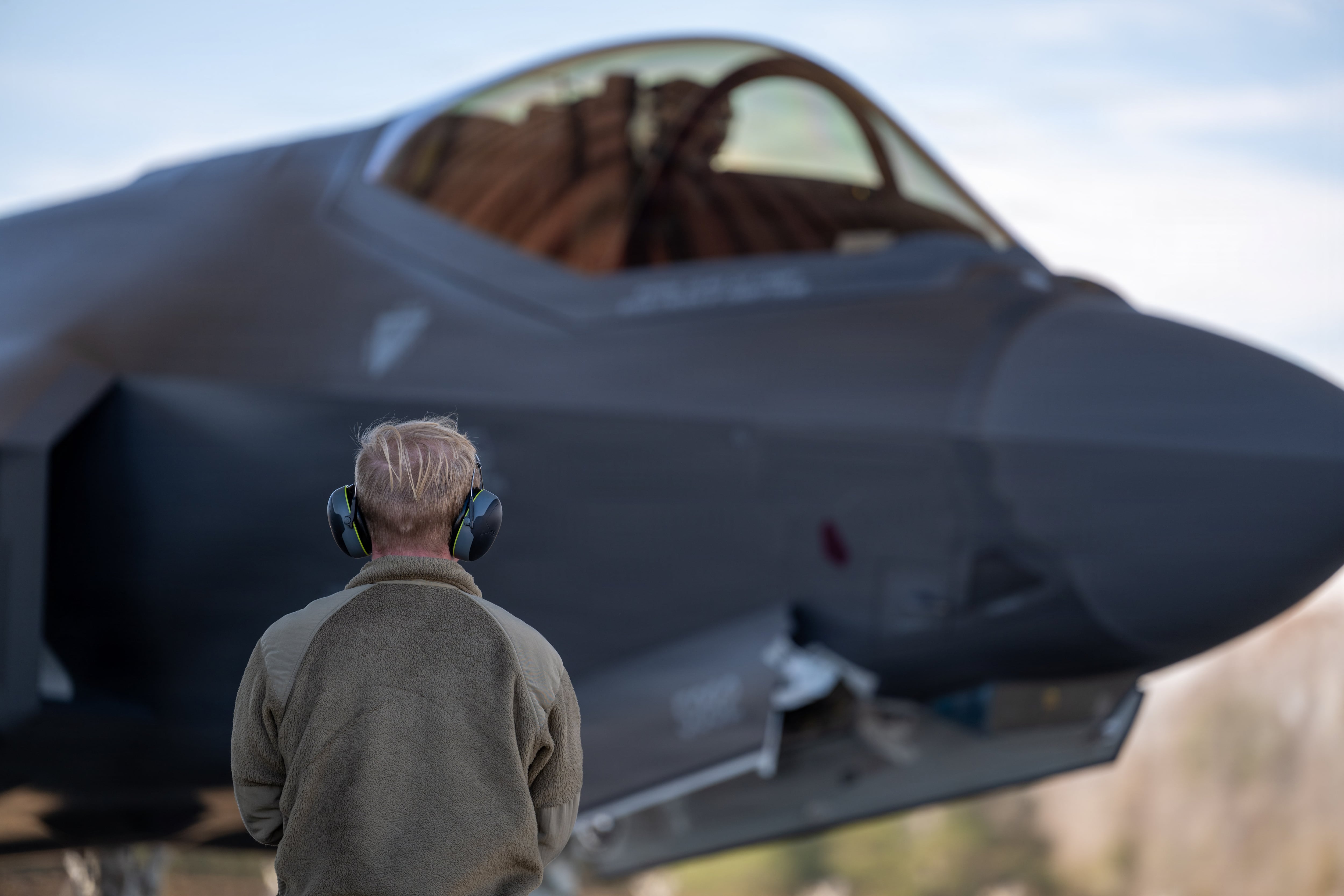SOUTH BEND, Ind. — If Pete Buttigieg’s presidential bid is successful, he’ll become the nation’s first commander in chief with experience from the recent wars.
It’s a responsibility he insists he is ready to take on.
“When you’ve deployed, you understand we have a military force for a reason,” Buttigieg said in a recent interview with Military Times. “We should be prepared to use it to defend the homeland, to prevent attacks on American soil and American interests and people. At the same time, you can’t be casual or careless about what is going on.
“Those who served in the Afghanistan conflict understand just how hard it is to end a conflict. I thought I was one of the last guys turning off the lights when I left (in 2014). That was five years ago. We’re still arguing how to get out.”
RELATED

Buttigieg, 37, has been one of the surprises of the early 2020 presidential campaign so far. The naval reservist and mayor of South Bend, has risen near the top of the polls and fund raising totals in the Democratic primary race, a feat that no other veterans from Afghanistan or Iraq have accomplished in their party’s races in the last five national election cycles.
Military Times sat down with the surprise veteran political success story to ask how he would run the military differently than the current commander in chief, and how his combat experience informs his policy priorities.
Portions of this interview have been edited for length and clarity.
MT: You’re a gay Democrat from a town that has a major university. I don’t think that’s the stereotype most people would have for a veteran breaking into the national conversation. Is it wrong of me to think that way?
PB: People can try and size you up by your profile, but if you tried to figure me based on that, it wouldn’t get you far. I’m a millennial, gay, Episcopalian veteran mayor from a blue city in a very red state. I think it just shows how you have to get to know people individually.
The story I have to tell is one that is largely true for a lot of people in my generation. But also for people in communities like mine, cities in the so-called Rust Belt, getting back on its feet that really is where a lot of the battle for the soul of America’s employable future is going to play out.
MT: How have people taken to your veteran status on the campaign trail?
PB: People have a real appreciation for it. There are people who served, of course, who see somebody that they can relate to. And then there are people who never served who still sometimes don’t know what to make of people who did, but go out of their way to show respect and appreciation for their service.
Part of what I have a chance to do is talk about the urgency of some of these issues of war and peace, not to mention how we take care of veterans, from the perspective of somebody who has experience. And try and open up people’s eyes to what is at stake and why this matters, why we have to do a better job of looking after service members. And why it’s so important never to treat the military as a prop or a political football.
MT: What is your vision for what a Commander in Chief should be?
PB: (My first task) is to establish a higher and clearer bar for when we are going to use military force. The way this administration has casually thrown around the idea of getting the military involved in Venezuela, or militarizing the U.S. border, or escalating things with Iran, it doesn’t really reflect a clear-headed sense of what thresholds you do apply for the use of military force.
The second big task is going to be restoring U.S. credibility around the world. We have not been this badly off in terms of respect from other nations – especially our allies – as long as I’ve been alive. It’s vitally important that the U.S. command more respect than we do today.
MT: Being a veteran, will you be more reluctant to commit to force?
PB: Part of what you get from having been in a conflict is the gravity of some of the forces they are playing with. What worries me most about the Iran situation isn’t so much the president’s intentions as the competence in the White House right now. The possibility they could initiate something that gets away from them. The dynamics over there could reach a point actually where the White House loses control of an escalation.
When you’ve deployed, you understand we have a military force for a reason. And we maintain the best fighting force in the world for a reason. We should be prepared to use it to defend the homeland, to prevent attacks on American soil and American interests and people. At the same time, you can’t be casual or careless about what is going on.
Those who served in the Afghanistan conflict understand just how hard it is to end a conflict. I thought I was one of the last guys turning off the lights when I left (in 2014). That was five years ago. We’re still arguing how to get out. It’s a reminder how difficult it is to wrap up a conflict once you’re in it.
MT: How do we get out of Afghanistan?
PB: To me, we can’t be the guarantors of full peace and prosperity for democracy over there. What we should do is do our part to support a democratically elected government that will be friendly to the U.S. That doesn’t mean an open-ended commitment of troops on the ground.
Sure, we can have intelligence capabilities. Sure, we can have special forces capabilities to prevent another attack on the homeland. But beyond that, I think it’s time to go. And what is very important now is that we step up conversations that are taking place with the Taliban to make sure the exit is as orderly as it can be ...
We have to wrap this (war) up. So my expectation is we will not have ground troops much longer than when I arrive in office.
MT: Does the U.S. troop presence in places like Korea and Germany need to be re-examined?
PB: I think we always evaluate it in the context of conditions. We don’t want to be everywhere forever. But we need the kind of forward deployment and operating force projection capability that comes from a presence around the world hosted by friendly countries that we have a good relationship.
What is frustrating about the tone the current president has struck is it makes it sound like we’re sort of victims, that there is resentment going on. The reality is that you can either lead the world or resent the rest of the world. But you can’t do both. It makes you look smaller if you are complaining all the time.
Of course we want our European allies to step up and produce more resources in the European security framework. That is an important priority. But we aren’t going to get there by going around complaining about how much we resent the fact that we’re in charge.
MT: Do you worry the military has gotten sucked into politics in a way that it hasn’t been in the past?
PB: Very much so. Individual service members have opinions and strong ones, and that’s fine. But when you put on the uniform, you put away your politics.
By the same token, the president ought to know that troops are not there to decorate his political ambitions. They’re there to defend the constitution with their lives. So when you see some of the things that go on — the treatment of the sailors on the USS John McCain, the use of troops as props on the border, even outside the military, the way the (memorial) wall at the CIA was allowed to be used as a backdrop. That’s something to honor people who gave their lives to this country, used as a backdrop for a political speech.
These kinds of things weaken the military, and the country, and the presidency. Service members deserve better. No matter where you fall on the political spectrum, you should know your president only views your service as a sacred trust and as something to help defend the nation, not as something to be politicized and turned into a shiny backdrop.
MT: A lot of liberal politicians are saying there is too much being spent on the military right now. Where do you stand?
PB: We need to maintain absolute military superiority. I think we can do it in a leaner fashion over time.
If you ask anybody involved in supply or logistics … they’ll tell you stories about spectacular waste. Anyone who has been in uniform has seen money wasted. Largely, it’s because (the military) is such a large enterprise. So we know we can do something about that.
To me, the biggest question is not how much we are spending, it’s where we are spending it. The Chinese are investing huge resources in things like artificial intelligence. If they develop artificial intelligence and predictive computing superiority over the United States, then the most expensive ships and planes and units we’re putting out in the field just become bigger targets.
We have to make sure we’re investing in things that are actually going to matter for 21st century security, and not have a 20th century framework for where these dollars are going to go.
MT: "Don’t ask, don’t tell” was still policy when you joined the military. Why was that not a deterrent to you joining?
PB: It definitely made a lot of people think twice. At the end of the day, I wanted to serve, and that trumped everything else. I wanted to make myself useful. But it was frustrating knowing that I could lose my job.
What was amazing was that after I did come out, after “don’t ask, don’t tell” was repealed, was that I heard from so many other people in the same boat. Good soldiers, good sailors who found it hard to do their job because they had that extra pressure of not being able to talk about their home life the way.
What’s more of a military tradition than talking about your spouse and your kids, whether you’re proud of them or grumbling about them? The ability to do that, it’s actually a really important part of unit cohesion that only became available when we did away with “don’t ask, don’t tell.”
MT: We have the transgender enlistment issue now. What is the next step there?
PB: It’s a huge distraction for service members, even if they don’t lose their careers. And if they do, it’s a huge injustice. Especially because this is being served up at the hands of a president who faked a disability to avoid serving when it was his turn. We can do so much better in this country.
I think any institution, especially in the military, ought to judge people based on the job you’re doing. If you’re doing a good job, you ought to get promoted. And if not, there are consequences for that. All the other stuff needs to be taken off the table.
For some reason, this president seems to think there is a political advantage in picking on people who are already vulnerable because of who they are. If they’re ready to serve, and their evaluations show they are doing a good job, why would you hold something unrelated against them?
MT: A new Pew Research Center poll shows an almost 60-40 split among veterans who support Trump. Why do you think he enjoys such strong support among veterans?
PB: I think some of it is generational, some of it is regional. But that is what I’m trying to break down. I’m trying to make sure that people hear voices from this part of the country, the industrial Midwest, saying there is a better option out there than this president’s message of stopping all the changes happening in the world and turning back the clock. That’s a promise you can’t keep.
I think the most important thing for veterans is they need to see an alternative. I think part of the idea of having someone like me running is that it would be nice if that someone actually stepped up when the time to serve came.
MT: Do you think military service should count more in the presidential race?
PB: It ought to count for something. I don’t think you should just hand it to a veteran over a non-veteran. But all things being equal, I think it is important that (candidates) show they are committed to this country.
There are different ways you can do that over the course of your life. I’ve put out a call for national service that largely focuses on civilian service opportunities like Americorps, Peace Corps and local service opportunities in addition to the military.
Bottom line is, a good way to demonstrate what you’re made of is to see whether you are willing to put yourself on the line. It shouldn’t be a requirement, but it is one way to get a sense of where your candidates are coming from and what they cared about before the lights were on and they were running for the presidency.
MT: How do you feel VA is performing?
PB: I hear two things (from veterans). One is that they are frustrated with the state of affairs. The other is that they do not want it to be privatized or replaced.
We have VA for a reason, and one of those reasons is that different wars have different wounds. We never would have been able to learn as a country how to deal with Agent Orange or traumatic brain injury or PTSD if it weren’t for some of the work done within the VA that is specially designed to respond to those things.
But the wait times are too long. The distance you have to drive is sometimes too far. The struggle to get mental health on par with physical health is not complete. And far too many people are still left outside the system.
So it’s clear we have to do a better job. That involves bringing new tools to bear, using technology in new ways. It’s not so much asking veterans to be masters of technology, especially if they’re from an older generation. But under the hood, using technology to simplify the processing and reduce these waits that everyone is subjected to.
I think we can do that without turning it over to the private sector for people to make money off of, and assuming that will make it all better.
MT: Do you think the Mission Act and these new VA Choice provisions have gone too far?
PB: I do worry the president is moving (VA) in the direction of privatization. Look, some of this choice stuff is great. You don’t have to drive all the way to the VA hospital to get a simple over the counter medication or procedure.
At the same time, it’s fundamentally different, some of the things that VA treats. The obligation, the promise between VA and its veterans is fundamentally different. It deserves its own department. It deserves its own system. We need to make sure that system doesn’t let people down.
MT: What is the key difference between what people would see with you as commander in chief and the current administration?
PB: You’re not going to see the military politicized under my administration. You’re going to see a view towards national security that is really prepared for the accelerating pace of change.
There’s a lot more to security than anything you can address by putting up a wall. In an era of cyber security threats, election security threats, climate security threats, what you’re going to see a vision of security and military service informed by somebody who is planning to be here in the middle of this century when we will be held to account for whether our current policies succeed or fail.
And somebody who has been there, deployed, and knows what’s at stake in the decisions they make in the situation room at the White House.
Leo covers Congress, Veterans Affairs and the White House for Military Times. He has covered Washington, D.C. since 2004, focusing on military personnel and veterans policies. His work has earned numerous honors, including a 2009 Polk award, a 2010 National Headliner Award, the IAVA Leadership in Journalism award and the VFW News Media award.




